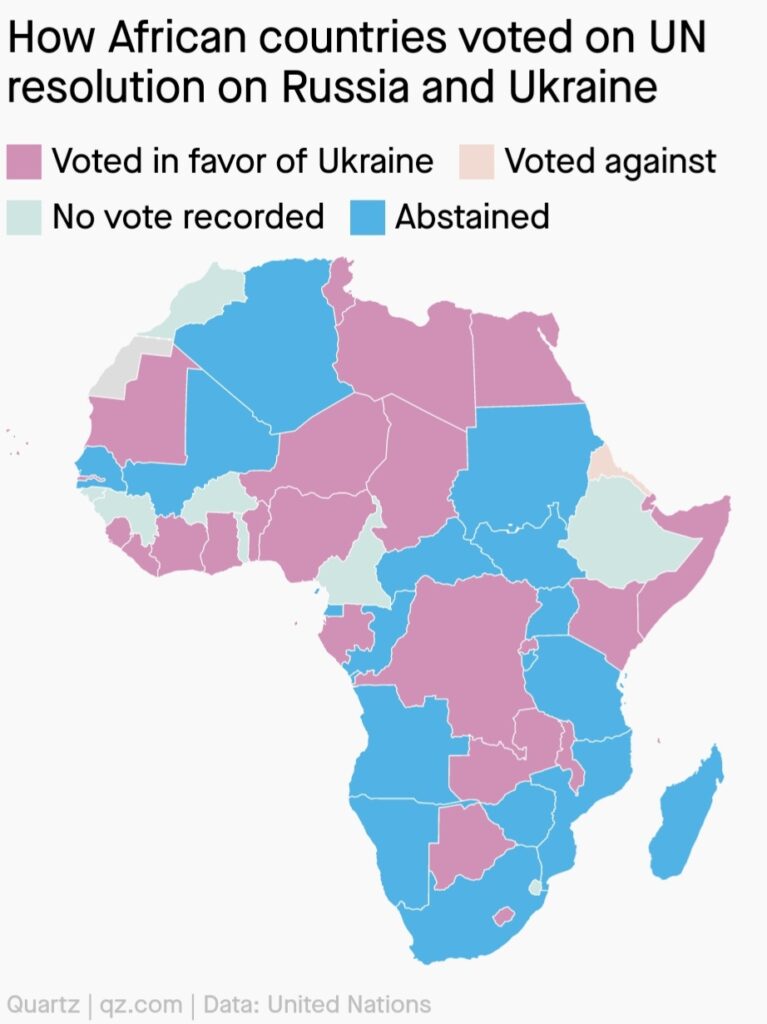•How African countries voted on Russia’s invasion of Ukraine
•Vote outcome a symbolic victory for Ukraine.
By Carlos Mureithi
Africans are criticizing their governments for abstaining from the United Nations vote condemning Russia’s invasion of Ukraine.
On Mar. 2, 17 African countries abstained from the UN General Assembly vote, representing almost half of all countries that sat on the fence. Eritrea, on the other hand, was the only African country that voted against the resolution, joining Belarus, North Korea, Russia, and Syria.
The resolution, which says it deplores Russia’s “aggression against Ukraine,” was passed at an emergency gathering of the UN General Assembly. It was voted on by 141 of the body’s 193 member states, with 35 members of the UN General Assembly abstaining from it.
The vote means the UN has declared Russia’s invasion of Ukraine a violation of the UN Charter, the foundational treaty of the global body.
General Assembly resolutions are non-binding but they have political weight. Therefore, the vote represents a symbolic victory for Ukraine.

https://datawrapper.dwcdn.net/uGZAz/2/
The vote also indicates division among African countries on the Russia-Ukraine war. While some have strongly condemned Russia’s invasion, most have remained quiet. The African Union on its part has asked Russia to respect international law and Ukraine’s sovereignty.
Social media users criticized African countries for abstaining from the vote.
Some of the abstaining countries have defended their decision. On Mar. 6, South African president Cyril Ramaphosa said the resolution “did not foreground the call for meaningful engagement” between Russia and Ukraine.
“South Africa expected that the UN resolution would foremost welcome the commencement of dialogue between the parties and seek to create the conditions for these talks to succeed,” he said.
“Instead, the call for peaceful resolution through political dialogue is relegated to a single sentence close to the conclusion of the final text. This does not provide the encouragement and international backing that the parties need to continue with their efforts.”
Credit | The Quarzt Africa

